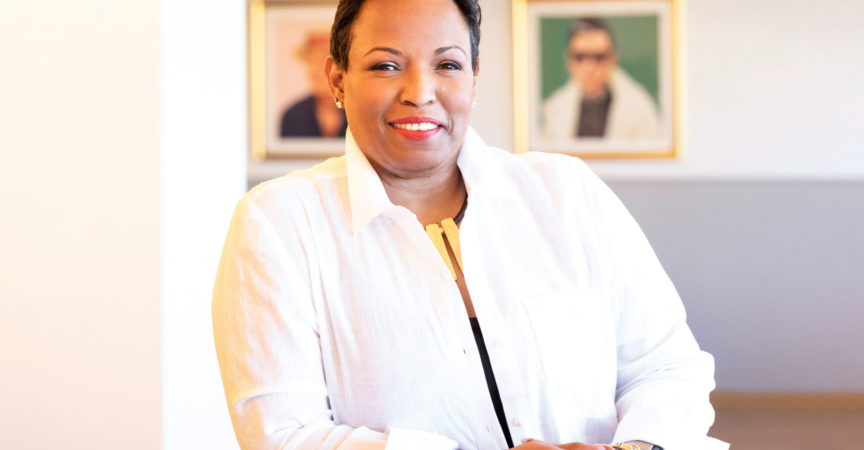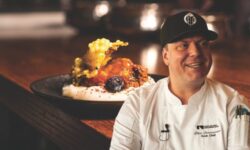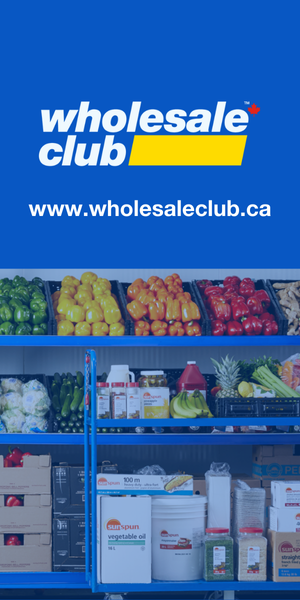AT Foodpreneur Lab, It’s All About the Collab
Janice Bartley is founder and executive director of Foodpreneur Lab, a Toronto-based non-profit with a mandate to develop and support emerging and established food entrepreneurs in Black and under-represented communities. A Black woman and entrepreneur herself, she is experienced, focused and articulate —the kind of leader you instantly admire and want to learn from.
She is also the kind of leader who knows exactly what she wants: opportunities in and access to Canada’s food system for Black food entrepreneurs, and the partnerships to accelerate and scale their businesses.
Foodpreneur Lab welcomes 50 participants each year, for a nine-month project. The application window opens each February and closes March 1st, with this year’s new project group starting on their Foodpreneur Lab Path April 3rd.
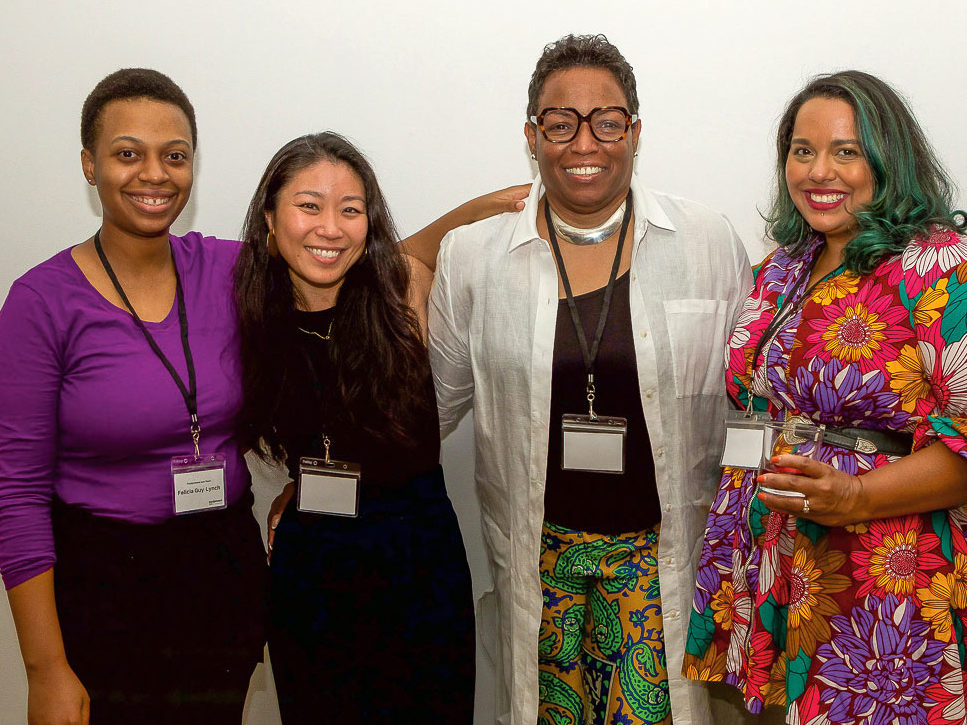
Jr Developer Felicia Guy-Lynch
Regional Expansion Manager Calla Le
Executive Director Janice Bartley
Project Manager Marie Fitrion
Part of Foodpreneur Lab’s focus is to create access for food entrepreneurs to the food ecosystem. Their mandate encompasses owner-operated culinary businesses as well as F&B product development and launch. They also provide support to help entrepreneurs access wholesalers to secure consistent supply and favourable pricing and specialized equipment. Bartley notes that processors often get stalled at the point they begin to achieve scale and need to introduce efficiencies to maintain and grow their momentum. “Small processors are evolving, and new pieces of equipment are required,” Bartley explains. “Equipment is often needed to reach that next level. For example, I know someone who was trying to launch and it took her five years just to get a piece of machinery she needed that chopped coconuts—not the exterior, but the interior. That delay prevented her from scaling up because the time and labour spent chopping is so intensive.”
Foodpreneur Lab’s role begins with growing awareness of the market that exists within the Black diaspora, and that there is further market potential as these businesses grow and evolve, opening community storefronts, exploring retail distribution or building plants and factories. Bartley points out that the emerging community of Black food entrepreneurs seek opportunities to advance their products and services in support of the diaspora marketplace, but crucially, they’re looking for opportunities to collaborate to seize the full potential of their business concept. “These entrepreneurs are accessing these markets for the first time. As a community, we can’t do it on our own, and food is not a stand-alone. We all need to cross-pollinate in various ways. Maybe you have underutilized space—how can we partner with you to maximize that space while minimizing the overhead cost? This is one of the many barriers that underserved communities face when they’re looking to get their products to market.”
As you get older, you start to ask yourself, “What’s my purpose?“ I noticed that men tend to use the word “legacy,” but women want to give back in ways of purpose.
Like so many female leaders, Bartley’s vision for Foodpreneur Lab addresses real-world problems she had personally experienced. “I continuously walked into rooms where I was the only person of colour and that was a little bit daunting. It’s not that you question whether you should be in the room, but you question the value you’re going to bring. I don’t care how strong you think you are; it’s human nature. Over time, I realized I did have value, but first I had to overcome not having other peers who looked like me in the room. That in itself was an experience, but I wouldn’t allow it to take away from what I needed. And, over those three decades, I was really able to see the significance and importance of not only networking, but of building partnerships. That’s where longevity is bred. I looked at successful organizations and the partnerships they had in place, and I realized having that foundation was intrinsic to the success of any business.”
As Bartley moved through her career, she realized that the talents and skills she had were not benefiting or being shared with underserved communities. “As you get older, you start to ask yourself, “What’s my purpose?”, she recalls. “I noticed that men tend to use the word “legacy”, but women want to give back in ways of purpose. I thought it was time for me to go back to community and take those same talents and plant the seeds to build something sustainable. I had the opportunity to do that when the Black Ecosystem Fund was launched and the request was put out for proposals in December of 2020. For me, that was a pivotal event because the Government of Canada finally recognized that in order to grow entrepreneurship, you have to support entrepreneurship with funding dollars. The fact that we had not been collecting statistical data on underserved communities, specifically Black communities was really unfortunate, but now we’re rectifying that. We pay taxes, we contribute to the economy. It’s now been recognized that those funding dollars are important to build those foundational bases and create opportunities that we’ve never had access to. The statement or idea is that it’s not that we can’t perform, it’s that we’ve had few opportunities to compete and perform. This was not only a phenomenal opportunity for me, it was also integral to stack the building blocks so that five or 10 years later, we could offer Black entrepreneurs, and especially youth, a plethora of new opportunities they might never have considered.”
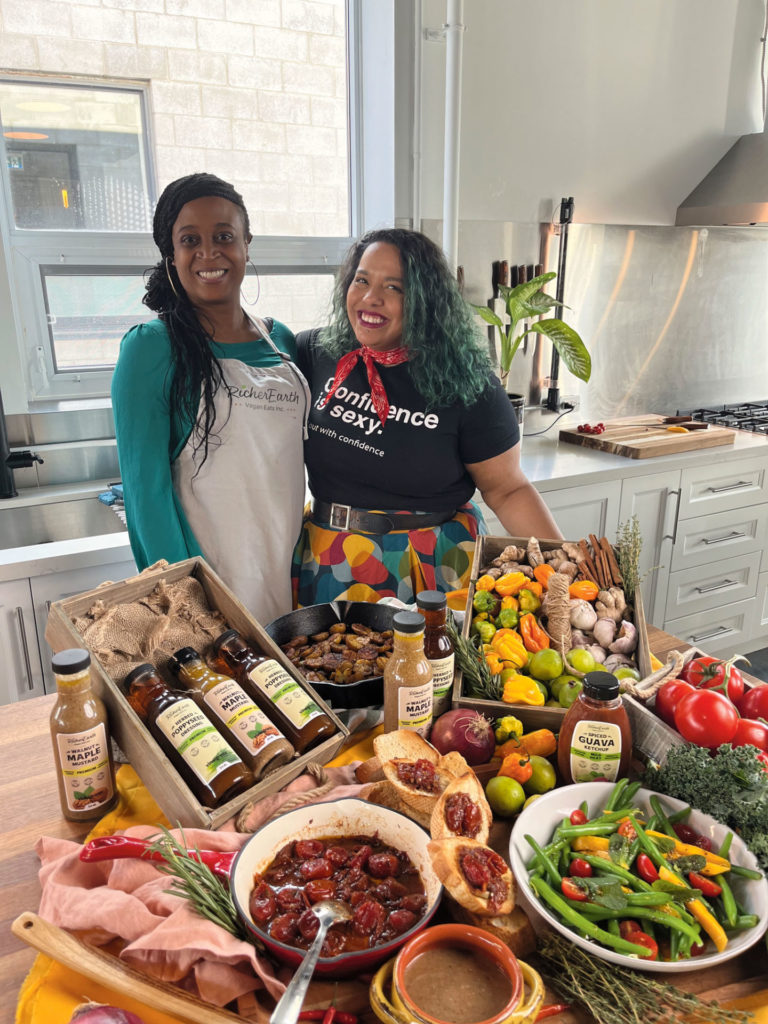
While Foodpreneur Lab is an incubator-accelerator for emerging food business, it has many intentional, unique qualities that address the specific needs and strengths of the entrepreneurial community it serves. Bartley’s prior business experience had also exposed her to similar organizations where she had observed pitfalls and gaps she was careful to avoid. “I didn’t want to design and create a duplicate of something that already existed,” she acknowledges. “Even prior to being involved in accelerators and hubs, I believed we come from an archaic educational system, where people come in, you educate them and then you send them out. Unfortunately life doesn’t work that way. Entrepreneurship is continuing education, end of story. It doesn’t stop, you have to learn. You have to be agile and it’s through experiences that you are taught these successes and failures—and more failures than successes, I might add. The failures play a significant role. They teach you creative thinking, and that’s how you become a visionary.”
Like many leaders, Bartley felt she didn’t fit within the traditional model. “I didn’t fit in traditional academics. It wasn’t for me, and I quickly picked up on that. I thought, “Okay, if I was going to be an entrepreneur, what would I want? How would I make it differently?” I want to respect our lived experiences and that is what’s missing in traditional incubators. They’re not reflective of diverse communities and we hear it time and time again. “I had a product, and they didn’t understand it,” or “I was the only Black person and I was not confident enough to communicate my culture in that room.” I don’t care if you’re five years old, or you’re 55 years old, if I put you in a room and there’s nobody else like you in that room, you’re going to do one of two things: you’re going to be super shiny or false because you’re not used to being in that environment, or you’re going to withdraw.”
Entrepreneurship is continuing education, end of story. It doesn’t stop, you have to learn.
Another aspect Bartley acknowledges is the need for entrepreneurs to educate the room on the context of their product, before they even get into its unique attributes or value. “Food is medicine, especially in the Black diaspora,” she explains. “Food has medicinal value for us, and so there needs to be an educational aspect to the innovation to bring these food products to the mainstream market,” says Bartley. “Everybody wants something natural. I don’t care if you want to look like younger, have shinier hair or longer nails— we’re all chasing that ghost, okay? We’re seeing an increased awareness of natural and healthy foods. Well, hello… that’s kind of our wheelhouse. That conversation is where the connection starts. For example, we use moss for arthritis, to regulate blood pressure and the list goes on. But if we put it in a bottle and put it out into the market, it can start that education and communication. That’s when we start to exchange ideas and then others can share back from their own culture. That’s how relationships start. That is so important, because it’s such a part of our identity—from yams to cassava to root vegetables to grains. I think what we’re trying to explain or provide to our food entrepreneurs is a sense of pride in the opportunity to showcase what we are and the strength of what the community’s about. And so, that dismissiveness will disappear over time. That’s the intention and the hope.”
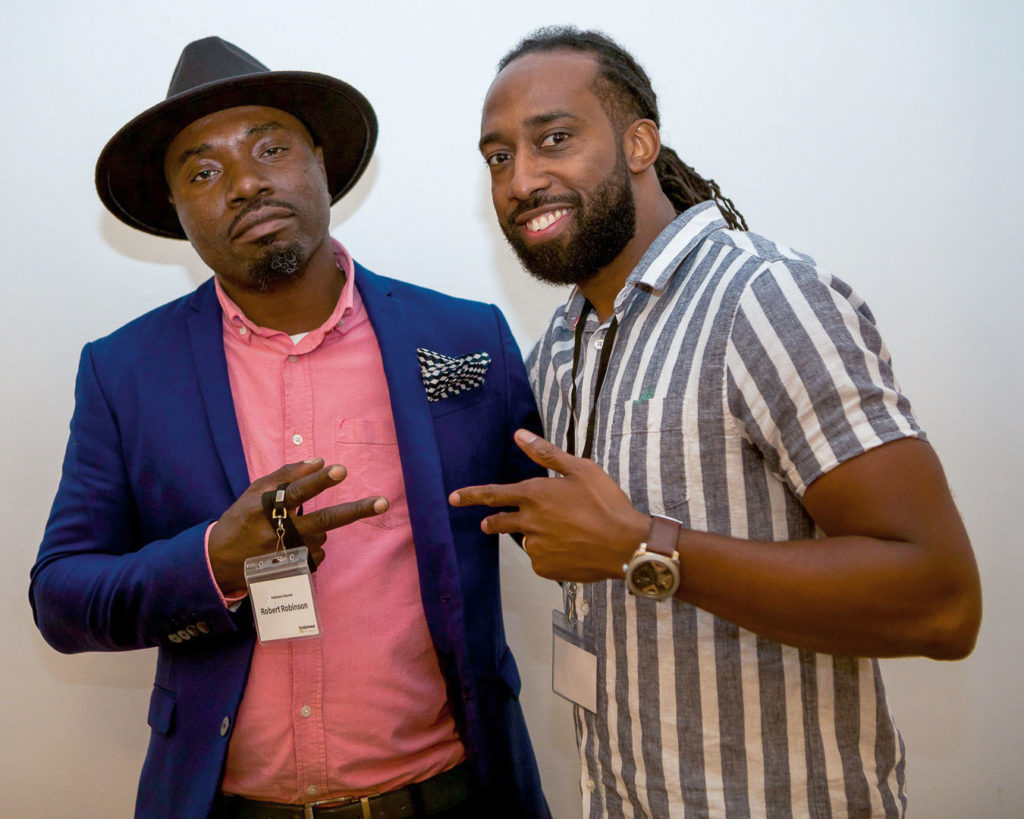
With these insights and her own experiences in mind, Bartley set out to create an alternative, supportive enterprise that took lived experience and cultural perspectives into account within their model and participant experience. “The emotional element was very important because, within our community, trust is not easily given, it’s earned. That trust comes in baby steps. But once you have it, they will travel the entire route with you. So, we proved we were a safe place, encouraged questions and made ourselves available. We prove that our team is here, and we will move heaven and earth to support you. For some, entrepreneurship may have sounded glamorous but, when they get in, they realize, it isn’t for them. That’s par for the course. But, people fall usually fall out for one of two main reasons: they’re either not sure of their idea or they’re not ready. We work hard to eliminate the barriers other organizations may not address or even consider.”
Foodpreneur Lab doesn’t offer “programs”, instead, entrepreneurs begin on a “pathway”, taking the view that entrepreneurship is not academic, but experiential. “We really try and stay away from that because it’s a deterrent,” Bartley notes. “The minute some people think it’s academic, they shut down based on their school experience.”
The Start Path is designed for foodpreneurs with an idea they haven’t yet launched or monetized. It focuses on delivering fundamental knowledge and improvement to transform ideas into market-ready prototypes. The Scale path addresses the needs of those further down the path. These participants already have a product in the marketplace and are ready to commericialize, scale or diversify.
Traditionally, most incubator-accelerators will do nine or 16 weeks, and they won’t maintain their advisors and efforts to monitor or address what’s happening in the new business for the long-term, Bartley points out, “An entrepreneur may not encounter that pain point until three or six months down the road. The beautiful thing about what we’re doing is that when that challenge happens, our entrepreneurs still have access to Foodpreneur Lab advisors. We’re invested in the whole journey.”
Foodpreneur Lab is laser-focused on breaking down barriers to allow their entrepreneurs to fully access and participate in the food sector. For that to happen, Barley believes entrepreneurs first need to be heard and seen. “We want to have collaborations with wholesalers. There’s a demand, andwe are a resource. For any food business to succeed, regardless of colour or creed, there has to be the intention to collaborate, otherwise it won’t survive. We have a food insecurity issue, right now, that spans all income levels. If we’re talking about food insecurity, food sovereignty, then we really have to step back and look at the food ecosystem, dismantle the pieces that aren’t working—and trust me, some of them are not working—and look at how we can innovate to rejig the system to thrive. For everyone.”
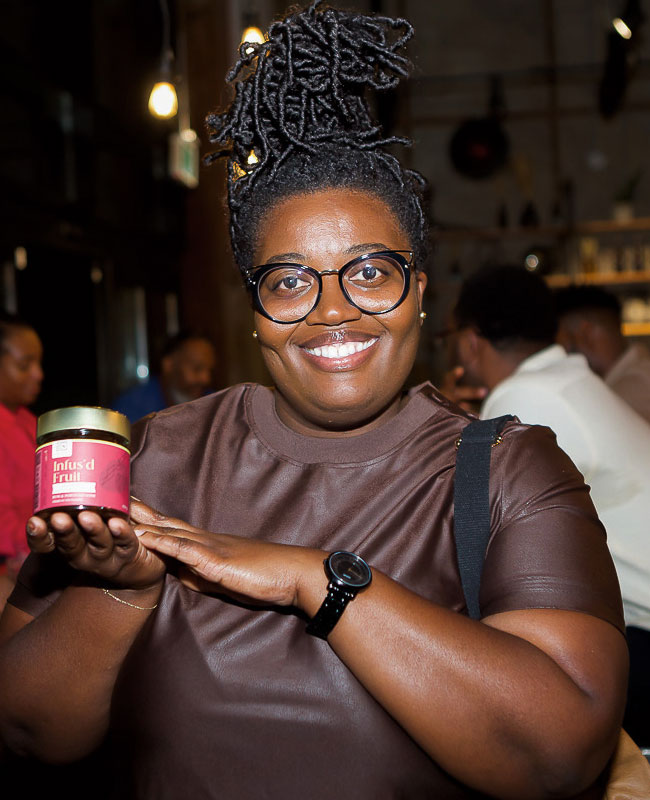
Collaboration is integral for growth throughout all platforms, but especially in the food space.
What Foodpreneur Lab wants most from the industry is access, followed by collaboration. “Collaboration is integral for growth throughout all platforms, but especially in the food space,” Bartley asserts. “I personally acknowledge I cannot do this on my own. It has to be an industry partnership. And I’ve been saying this for over a decade and so finally, you know, organizations like Restaurants Canada are listening; they’re hearing. That’s huge for me. I have been waiting for you guys for 10 years, okay?”



